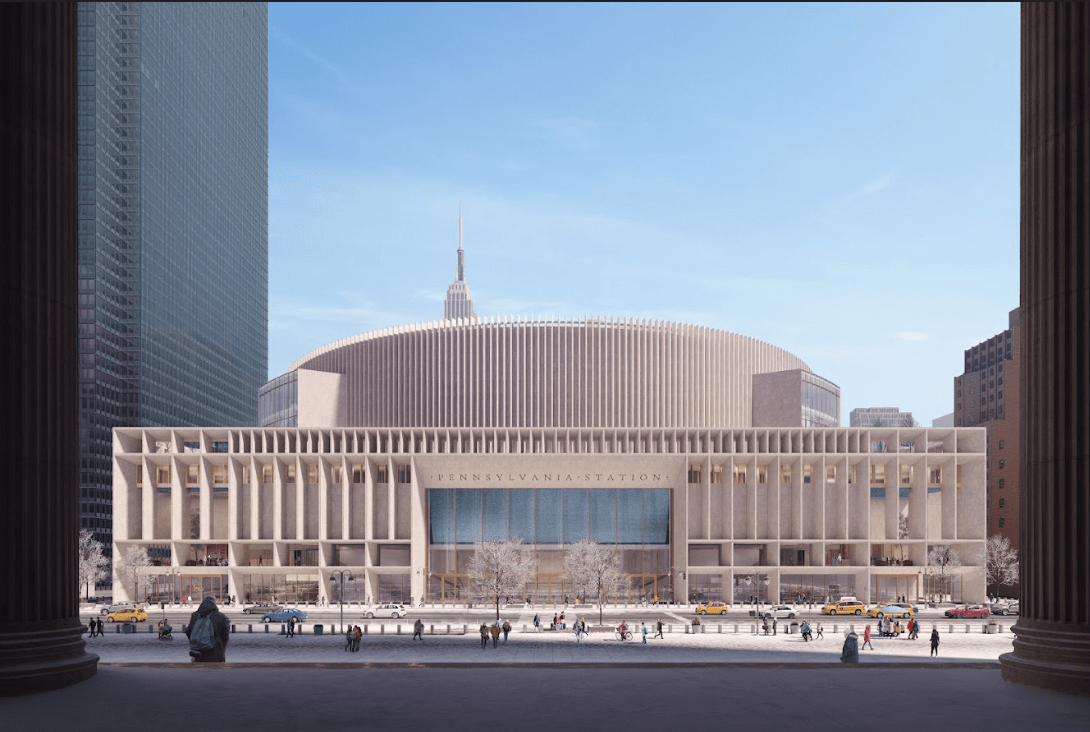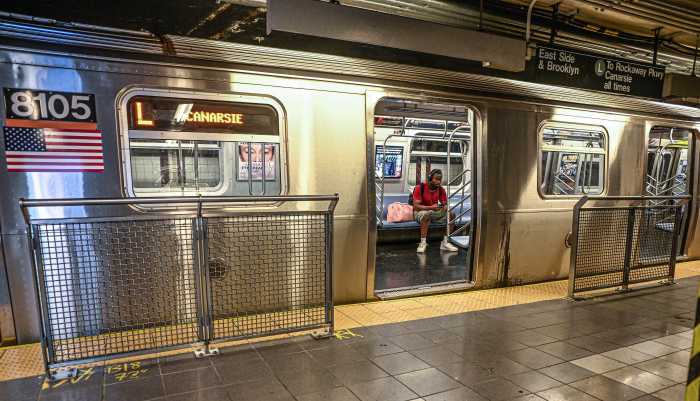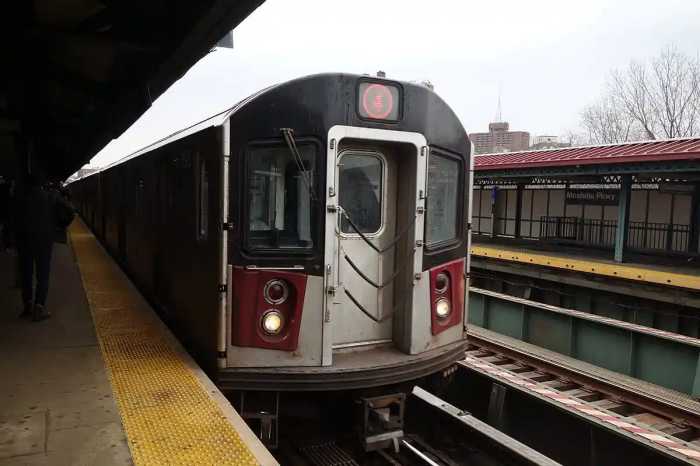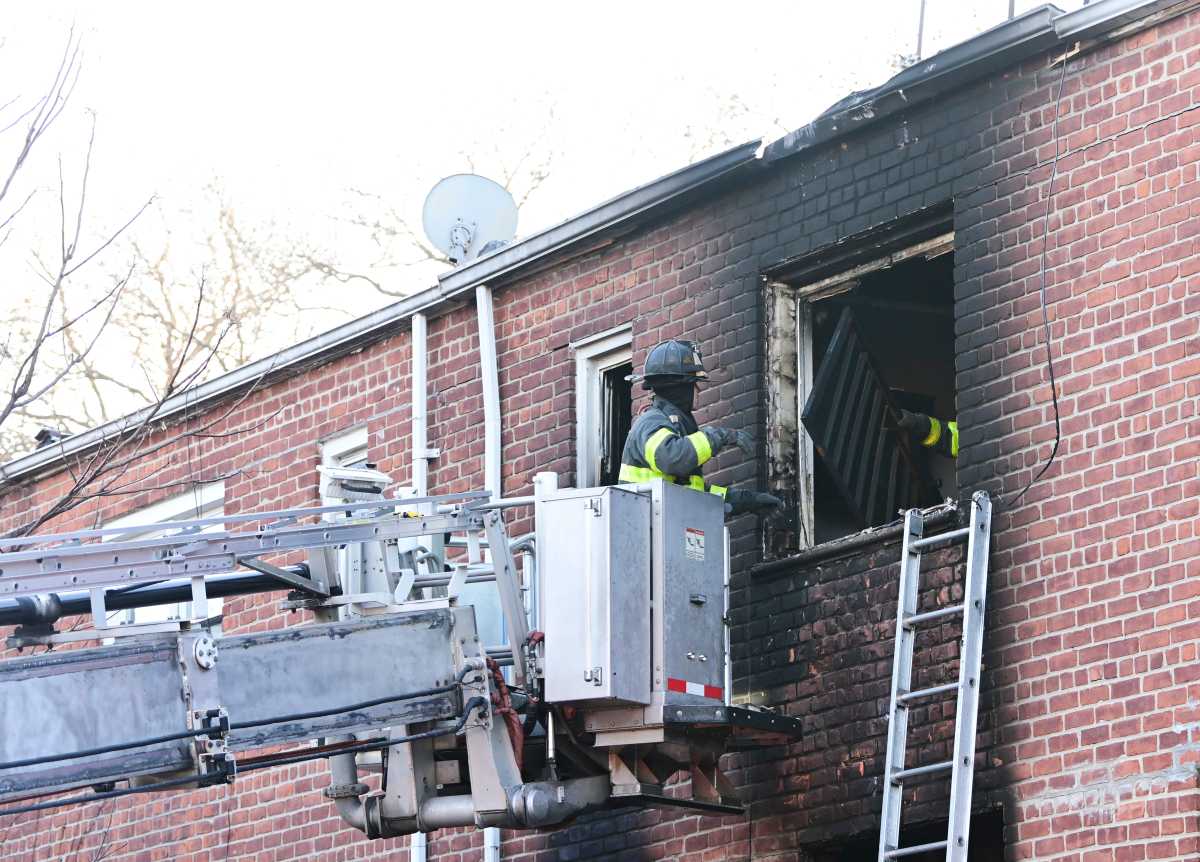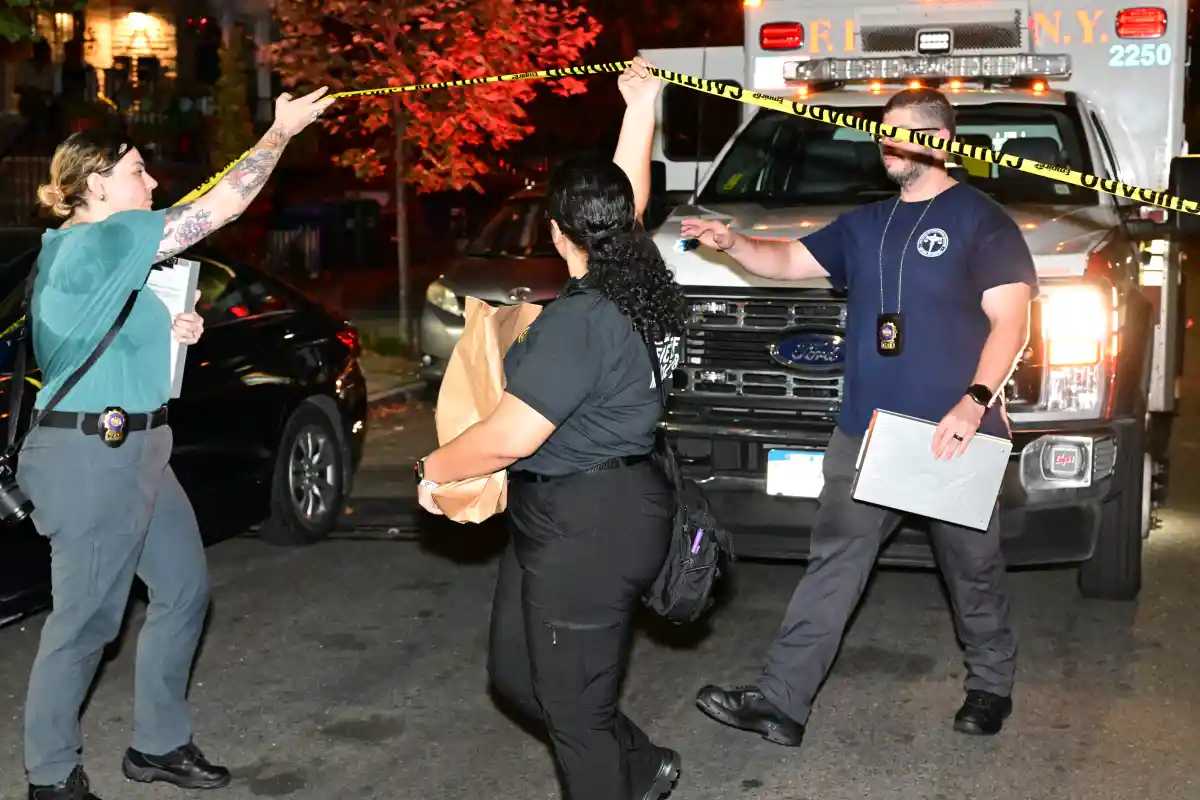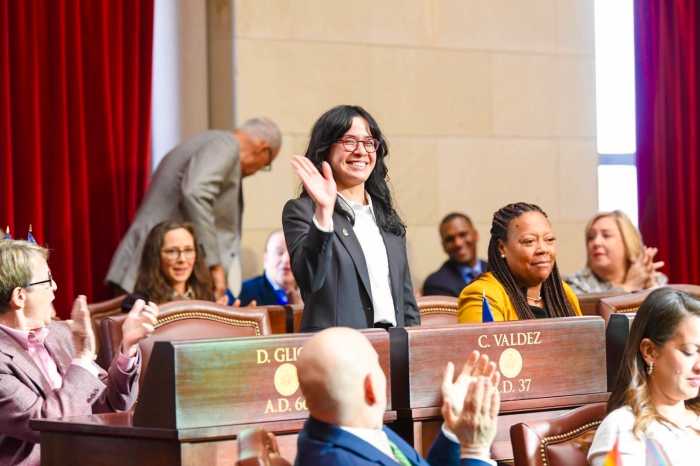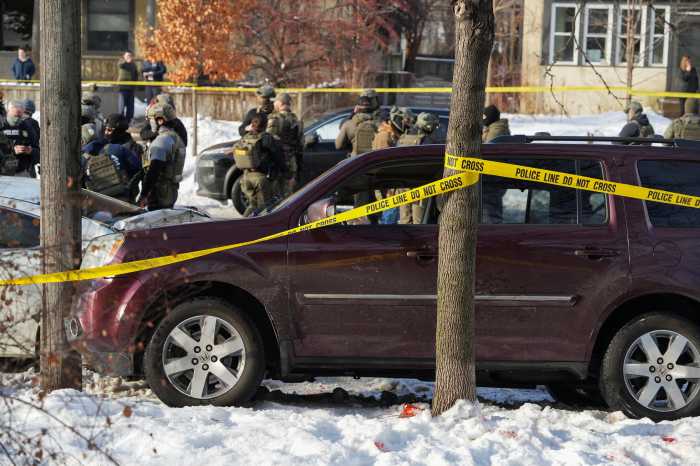The Italian engineering firm ASTM has unveiled its full $6 billion plan to remake and modernize Penn Station while keeping Madison Square Garden in place.
ASTM’s plan, which it says would be financed by a $1 billion upfront investment coupled with federal grants and loans, would build on the existing proposals by the railroad agencies using Penn Station — the MTA, New Jersey Transit, and Amtrak — to construct a light-filled mid-block concourse on the site of the drab, cavernous, long-maligned station, which is the busiest in North America.
ASTM’s plan involves creating a new, stone-clad cubic structure to surround Madison Square Garden, which would allow for the construction of two new, sunlit train halls with 55-foot-high ceilings and a grand entrance on Eighth Avenue. The mid-block train hall between 31st and 33rd streets would boast 105-foot-high ceilings.
The firm claims its plan can be accomplished in just six years, faster and $1 billion cheaper than a competing proposal by the railroad agencies, while also keeping the World’s Most Famous Arena perched on the spot it’s occupied above the train terminal for decades.
“Our proposal envisions two main train halls — a soaring Eighth Avenue entrance and a light-filled mid-block hall — that together will restore the civic gravitas that has been absent since the 1963 demolition of McKim, Mead & White’s original edifice,” said Vishaan Chakrabarti, the architect contracted by ASTM for the design. “Our new stone façade mirrors and reinterprets McKim’s masonry colonnade across Eighth Avenue at Moynihan Station, creating a great public outdoor room that brings the historical in conversation with the contemporary, all while prioritizing light and air, an improved public realm, a great mix of civic uses, and compatibility with planned rail and neighborhood growth.”

Penn Station has effectively been maligned since the day that the original, ornate station was knocked down to make way for the present underground terminus, with Madison Square Garden on top. The demise of the original Penn has often been cited as the defining moment spurring the modern historic preservation movement.
The proposal would have ASTM absorb any cost overruns and assume operations of the terminal for 50 years, with the three railroad agencies making “availability payments” to the firm.
The move by ASTM comes two days after Gov. Kathy Hochul and the MTA announced they planned to move forward with rebuilding Penn Station with or without the partnership of Vornado Realty Trust, which has shelved its previous plans to build new office skyscrapers in the area that would help finance the construction of the new station. The Vornado plan had been the source of major controversy in the neighborhood since it would involve the demolition of many existing buildings, and Hochul’s Penn announcement was largely drowned out by protesters.
Monday’s announcement served to formally kick off the design process for the new station, according to Hochul and MTA Chair Janno Lieber, and the state has already committed over $1 billion to the reconstruction effort.
ASTM’s plan has been endorsed by Manhattan Borough President Mark Levine, and boasts other powerful backers: ASTM North America’s CEO, Pat Foye, preceded Lieber as chair of the MTA and remains well-connected in government and business.
“ASTM’s plan will solve the litany of issues that have long plagued Penn Station and is the full realization of Gov. Hochul’s own vision,” Foye said in a statement. “We are confident that this is the plan that New Yorkers deserve, not only because of its innovative design but because our public-private partnership model will lower the financial risk for taxpayers and more effectively deliver a modernized Penn Station in its entirety.”
But Lieber has repeatedly thrown cold water on plans by ASTM, which he has portrayed as a giveaway to Madison Square Garden and its controversial owner, James Dolan, because it would require the purchase and demolition of MSG’s Hulu Theatre. At the MTA’s monthly board meeting on Tuesday, Lieber explicitly cast the ASTM plan as a Trojan Horse for MSG’s interests.

“We are committed to improving Eighth Ave, but we believe that you can do that with dramatic improvements to the corners, and that you don’t need to have the ASTM plan, also known as the Madison Square Garden plan, executed to bail out Madison Square Garden and give them $1 billion,” said Lieber. “The MTA’s about passenger movement and prudent investment of public dollars. It’s not about instead of getting Madison Square Garden to cooperate with the public facility, to bail Madison Square Garden out because of their less-than-successful theater investments.”
Lieber and the MTA have cited the construction of a new, modern concourse for the Long Island Rail Road at Penn as evidence the agency is capable of helming grand infrastructure projects.
As part of its proposal, ASTM released a letter from Richard Ravitch — the former MTA chair and lieutenant governor recognized as a fixture of New York’s civic life and broadly memorialized on his death this week — in support of the plan and calling Lieber’s opposition “misguided.”
“In my judgment, the alternative solution proposal is superior and should be given very careful, dispassionate consideration,” Ravitch wrote in a letter to the MTA in May. On his death, Lieber called Ravitch a “giant” in the transportation world.
The plans to reconstruct Penn Station have led MSG to come under pressure to relocate, with transit honchos claiming the Garden’s continued presence atop Penn is not “compatible” with the needs of commuters for a modern transportation facility. The Garden’s special permit to operate an entertainment venue expires next month, and the local Community Board voted in April to recommend a three-year permit extension on the condition the Garden relocates at the end of that period.
MSG honchos are not keen on moving and are seeking a permanent extension to its special permit. The application is being considered by the City Planning Commission, and the ultimate authority to decide rests with the commission, the City Council, and the mayor.
Read more: MTA Weekend Service Changes: Subway Disruptions Expected



